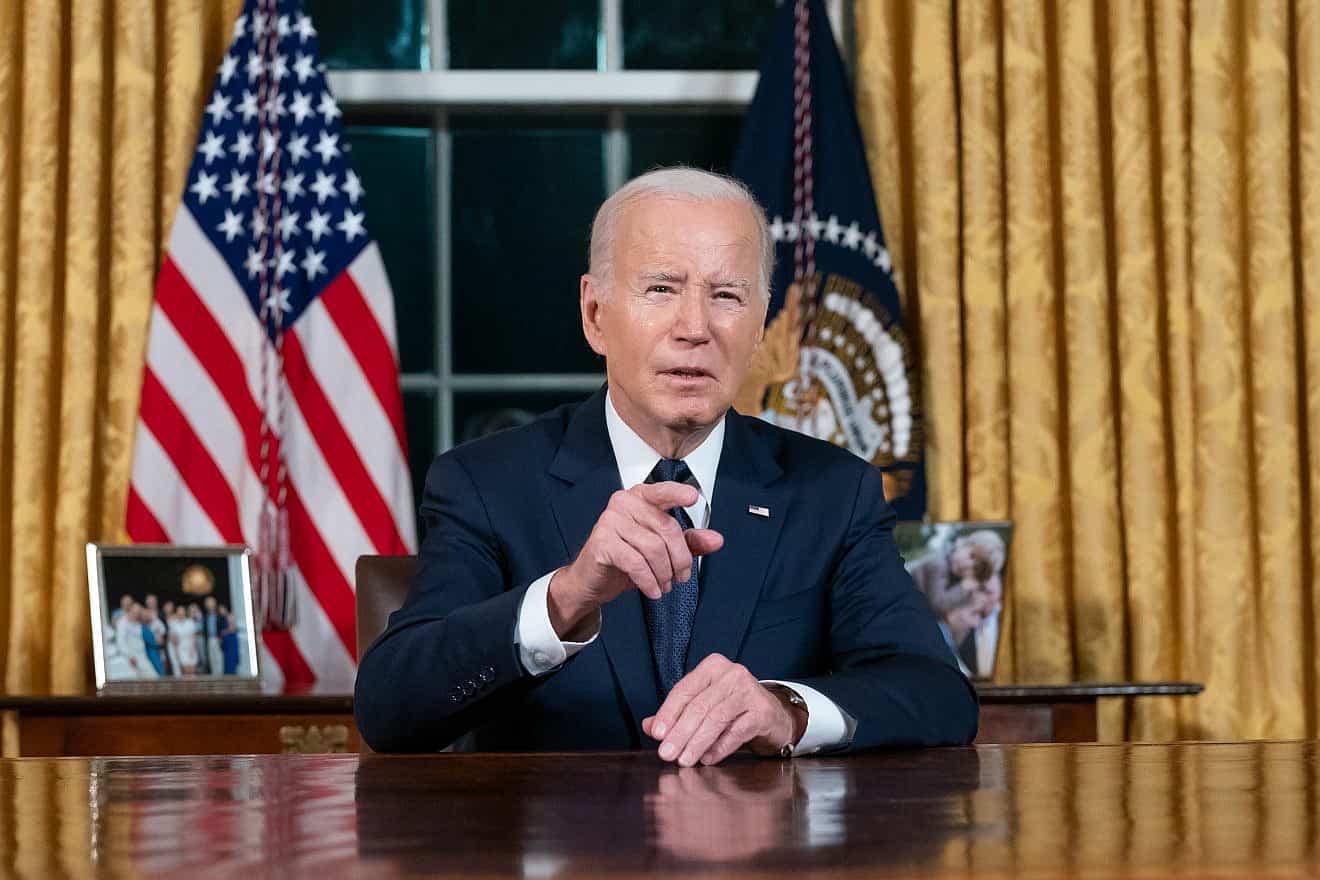Senior Israeli officials said on Tuesday that they were unaware of any basis for U.S. President Joe Biden’s remarks on Monday that a hostage-for-ceasefire agreement in Gaza is imminent.
During an unannounced visit to Van Leeuwen Ice Cream in Manhattan, near Rockefeller Plaza, Biden was asked about when a ceasefire in Gaza might start.
“I hope by the end of the weekend,” Biden said, per the pool report.
“My national security adviser tells me that we’re close. We’re close. We’re not done yet,” Biden said. “My hope is by next Monday, we’ll have a ceasefire.”
Ynet quoted the senior Israeli officials as saying on Tuesday morning that they do not understand “what the American president’s optimism is based on.”
The Hamas terrorist group also weighed in on Biden’s comments, with a source telling Reuters that the statement was premature and did not align with the situation on the ground.
“There are still big gaps that need to be bridged before there is a ceasefire,” he said.
A spokesman for the Qatari Foreign Ministry said on Tuesday that there has been no breakthrough in the negotiations that can be announced, while expressing that Doha is “optimistic” that a deal can be reached, even though Hamas and Israel don’t agree on any of the main issues. He added that Qatar has no intention of responding to Biden’s comments.
Reuters reported on Tuesday morning on the details of the proposal discussed at the Paris summit last weekend and submitted to Hamas for review.
Citing a senior official privy to the details of the talks, the news agency reported that the proposal focuses on the first phase of the agreement, would would last for 40 days and include the release of 10 Palestinian security prisoners for every Israeli hostage, which is seven more Palestinian terrorists freed per Israeli captive compared to the previous deal last November—40 Israeli hostages in total for 400 Palestinian security prisoners in the first stage.
Further, the Israeli captives include women, abductees aged 19 and under, adults aged 50 and over and sick captives.
Both sides will cease fire for 40 days and the IDF patrol flights over Gaza will stop for 8 hours a day. After the first phase, the IDF will gradually begin to withdraw its forces from dense areas of the Strip.
Additionally, displaced Palestinians will gradually be allowed to return to the northern Gaza Strip, except for men of enlistment age for Hamas.
With regard to humanitarian aid, the proposal reportedly includes a commitment to bring in 500 aid trucks every day and to supply 200,000 tents and 60,000 trailers. Also, Gazans will be allowed to rehabilitate bakeries and hospitals.
According to The New York Times, citing two officials familiar with the negotiations, Israeli officials have privately agreed to a U.S. proposal that would see five IDF female soldiers released in exchange for 15 Palestinians convicted of major terror offenses, in addition to 15 additional Palestinian prisoners for each soldier, totaling 60.
The other 35 hostages to be released in the first phase include seven women Israel believes should have been freed in the November deal. To release the seven women, Israel has proposed to release 21 Palestinian prisoners—the same 3:1 ratio as under the previous deal.
Further, Israel would release six Palestinian prisoners for each civilian man aged 50 and up and free 12 Palestinian prisoners for each sick or wounded man.
Male soldiers would be released in separate negotiations.


























